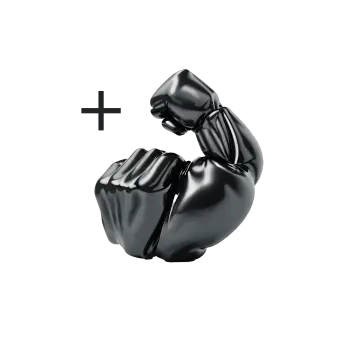What is Testosterone
Testosterone is a steroid hormone that belongs to the group of androgens, which are hormones associated with male sex characteristics. It is produced mainly in the testicles of men and in small amounts in the ovaries of women. In both sexes, a certain amount of testosterone is produced in the adrenal glands. Testosterone has several important functions in the body:
Development of male sexual characteristics: During puberty, testosterone plays a decisive role in development. For example, the voice deepens, muscle mass increases, and body and facial hair begins to grow.
Sperm production: Testosterone is necessary to stimulate and maintain the production of sperm .
Muscle mass and strength: Testosterone promotes increased muscle mass and strength by affecting protein synthesis in the muscles.
Bone health: It helps maintain bone mass and prevent osteoporosis.
Libido: Testosterone plays a role in sexual desire and ability in both men and women.
Hormonal balance: It is important to maintain a balance between different hormones in the body.
Energy levels: Testosterone can affect energy levels and mood.
Causes of Testosterone deficiency
When levels of testosterone drop below the normal range, it can result in testosterone deficiency which is a medical condition that can negatively affect a man's quality of life.
Aging: A natural decrease in testosterone production occurs with age. This age-related decline can be a common cause of testosterone deficiency in older men.
Medical conditions: Certain medical conditions such as hypogonadism, testicular or pituitary problems can lead to to low testosterone levels.
Lifestyle and diet: Insufficient sleep or an unhealthy diet as well as excessive alcohol consumption and lack of exercise can negatively affect testosterone levels.
Obesity: Obesity can increase the conversion of testosterone to estrogen resulting in a decrease in available testosterone in the body.
Symptoms of Testosterone deficiency
Testosterone's ability is to help the body be strong and feel that it is at its best. If, for example, you experience problems such as reduced or no sex drive, this may be because you have too low a level of testosterone. Here are common symptoms of testosterone deficiency:
Decreased sexual desire: One of the most common symptoms of testosterone deficiency is decreased sexual desire or erectile dysfunction.
Muscle weakness: Men with low testosterone levels may experience decreased muscle mass and strength.
Increased fatigue: Fatigue and lack of energy are common symptoms of testosterone deficiency.
Depression and mood swings: Reduced testosterone levels can affect mood and lead to depression and irritability.
Decreased bone mass: Testosterone is important for maintaining bone health, and testosterone deficiency can increase the risk of osteoporosis.
Treatment of Testosterone deficiency
Treatment for testosterone deficiency is individual and depends on the cause and symptoms. Here are some common treatment options:
Hormonal therapy: Hormone therapy such as testosterone replacement therapy (TRT) can be used to restore normal testosterone levels.
Lifestyle changes: For some men, healthy lifestyle habits such as regular exercise and a balanced diet can help increase testosterone levels.
Weight management: Losing weight can be an effective strategy for managing testosterone deficiency in obese men.
Psychological counseling: For to manage the psychological symptoms, therapy can be a useful complementary treatment.
It is important to consult a qualified doctor if you suspect that you are suffering from testosterone deficiency. An accurate diagnosis and individually tailored treatment can help you restore hormonal balance and improve your overall health and quality of life.


























